
The Plus program, which the UKRNAFTA filling station network implements jointly with the Ministry of Defense of Ukraine within the Army+ application, demonstrates stable efficiency and real support for the military.
Since the start of the project in December 2024, the military has refueled 13.3 million liters of fuel. The savings amounted to UAH 36.1 million. Another UAH 4.2 million was saved on cafe products and UAH 707.9 thousand on goods in the stores at the filling stations. In total, almost 100,000 military personnel have already taken advantage of the special discounts.
We remind you of the discounts for the military with Army+ at UKRNAFTA filling stations:
* -3 UAH/l for gasoline and diesel (up to 200 liters per month)
* UAH 0.5/l for liquefied gas (up to 200 liters per month)
* -30% for cafe products
* -10% for goods in stores (except for alcohol, tobacco and promotional goods, up to 2000 UAH/month).
UKRNAFTA consistently provides special service conditions for the defenders of Ukraine. The company thanks everyone who serves and continues to support the military every kilometer of their journey.
“Ukrnafta is the largest oil company in Ukraine and the operator of the national network of filling stations. In March 2024, the company took over management of Glusco’s assets and operates 545 filling stations – 461 owned and 84 managed.
The company is implementing a comprehensive program to restore operations and update the format of its filling stations. Since February 2023, the company has been issuing its own fuel coupons and NAFTAKarta cards, which are sold to legal entities and individuals through Ukrnafta-Postach LLC.
Ukrnafta’s largest shareholder is Naftogaz of Ukraine with a 50%+1 share.
In November 2022, the Supreme Commander-in-Chief of the Armed Forces of Ukraine decided to transfer to the state a share of corporate rights of the company owned by private owners, which is now managed by the Ministry of Defense.
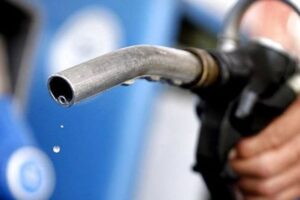
579 filling stations of the U.GO and Ukrnafta brands, which are part of Naftogaz group, have the appropriate equipment and are ready to operate in case of a blackout, the company said in a press release on Friday.
“Gas stations are represented in 20 regions of Ukraine and Kiev,” the group said.
A full list of gas stations can be found on Naftogaz Group’s Power Drive website: fill up at U.GO and Ukrnafta gas stations even in blackout conditions | Naftogaz Ukrainy (naftogaz.com).
“The enterprises of the Naftogaz group do everything possible to support Ukraine and the Ukrainians during the war. So we will be glad to see you at U.GO and Ukrnafta gas stations equipped with generators, which are ready for any possible challenges,” Oleksiy Chernyshev, chairman of the board of Naftogaz Ukraine, was quoted in the press release.
As reported, Naftogaz Oil Trading (a subsidiary of the NJSC) as of November 2022 launched 46 gas stations under the brand U.GO on the basis of assets of the arrested network Glusco, which consists of 126 gas stations
“Ukrnafta owns 85 special permits for the production of hydrocarbons. On its balance sheet there are 1,809 oil and 153 gas wells. The company owns 537 petrol stations, of which 449 were in operation at the beginning of December 2022. The controlling stake in the company belongs to Naftogaz of Ukraine, while the minority stake (about 42%) was held by Igor Kolomoysky and Hennadiy Boholyubov’s structures before the withdrawal.
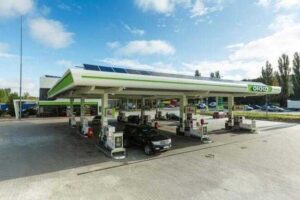
OKKO Group plans to install solar power plants at more than 80 fuel filling stations, founder of the holding Vitaliy Antonov said on his Facebook page.
He also informed about the opening of a solar power plant at a fuel station in Odesa at 2a Pestelia Street.
“For the Ukrainian fuel retail, this is a unique project. Both from an architectural and engineering point of view. We do not just have solar panels on the roof here. They themselves are a roof. Some 316 panels with a total area of more than 600 square meters convert ultraviolet light into useful energy,” he said.
He clarified that thanks to its own generation, the new filling station will be able to independently cover up to 70% of its electricity needs, and in warm weather – 100%.
“And I want to note that we approach cooperation with the sun systematically,” Antonov emphasized.
The OKKO filling station network (Galnaftogaz Concern) is a part of OKKO Group and is one of the largest filling networks in Ukraine, numbering 413 fuel filling complexes. The structure of the company also includes Ukraine’s largest network of food outlets on the road operating under the brands Hot café, A la minute, Pasta Mia and Meiwei, as well as the specialized operator OKKO Agrotrade, engaged in the development of the agricultural direction.
The company’s divisions are engaged in the sale of goods through stores at filling stations, the sale of petroleum products in large and small wholesale, provide services for the examination of the quality of fuel, storage and transportation of petroleum products. The OKKO network has ten own oil depots, one gas pumping station, 19 stationary and mobile laboratories for quality control of petroleum products.
The shareholder and institutional investor of the company is the European Bank for Reconstruction and Development.
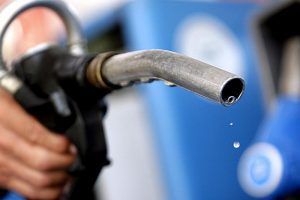
The Antimonopoly Committee of Ukraine has imposed a fine of UAH 4.7 billion on the operators of the filling station network, which are part of the Privat Group, for anticompetitive concerted actions in setting prices for petroleum products.
According to the committee’s statement on Tuesday evening, in particular, a fine was imposed on PTF Avias LLC, Trading House Avias LLC, Prom Garant Plus LLC, Alliance Evolution LLC, PJSC Ukrtatnafta and 169 filling station operators (including PJSC Ukrnafta).
The committee said that within the framework of the case opened in 2016, it was established that in the field of retail trade in light petroleum products in Ukraine, there is a system of cashless payments with scratch cards and Avias fuel cards. About 1,625 filling stations take part in this project, which operate under different brands in all regions of Ukraine, occupying a 25% share of all filling stations in the country.
“The committee determined that the Avias project is organized, coordinated and operates with the aim of harmonizing the price and trading behavior of the participants,” the committee said.
In particular, Keropur®ENERGY gasoline and diesel fuel were sold throughout the network, the same prices were set at a time regardless of the brand of the filling station and the region, and there was also a “center” that included several business entities located at the same address in the city of Dnipro, where detailed planning and coordination of network activities was performed.
In addition, the committee found a significant number of standard, basically identical contracts for the sale and purchase of petroleum products and property, lease of filling stations and financial assistance, and also established that individuals, who held the positions of director, founder, signatory, accountant, manager, etc, often changed each other and worked simultaneously in several companies participating in the project.
In addition, the composition of legal entities – participants in the project was constantly changing (without changing the personal composition). This happened through the same liquidators and at similar addresses of the latest registration in Kharkiv.
The committee found that filling station operators, including Ukrnafta, purchased light oil products from Ukrtatnafta at prices higher than similar imported fuel.
“Such coordinated behavior of the Avias project participants violates competition between operators of filling stations in the market. Therefore, prices for light oil products in the Avias network were set in anti-competitive conditions. Taking this into account, the committee approved to impose fines on the above-mentioned business entities in the total amount of UAH 4.7 billion for these violations,” the committee said.
“Today we are summarizing the result of a great deal of work and many years of legal confrontation between the Antimonopoly Committee and the participants in conspiracy on the Ukrainian fuel market. Despite complicated circumstances and enormous resistance from the defendants, we completed the investigation and made the decision,” Chair of the committee Olha Pischanska said after the meeting.
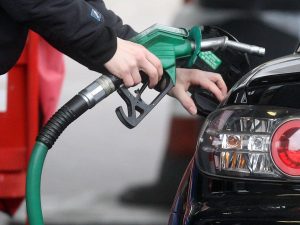
Modular (small) filling stations are united within the National Association of Petrol Retailers to protect their interests and work out the creation of uniform rules for the placement of facilities in the event of existing contradictions in the legislation.
“Thus, the small business sector in the petroleum product market is trying to protect its legal rights and stop the obstruction of its activities by local regulatory authorities,” the association said in a press release.
According to the association, at present, the current legislation contains certain features of the legal regulation of the manufacture, certification, establishment and operation of small filling stations. In particular, small filling stations are not classified as high-risk facilities, they are not required to carry out an environmental impact assessment on the environment, they are not classified as real property.
The association said law enforcement and regulatory agencies do not take into account the peculiarities of the legal status of modular filling stations, which leads to numerous restrictions in their economic activities and relevant losses to this sector of small business.
“The members of the association emphasize that there is a contradiction in the interpretation of the provisions of the current legislation in the field of licensing of retail trade in fuel by the territorial agencies of the State Tax Service of Ukraine, which creates obstacles in the implementation of economic activities and affects the overall shadowing of the small filling station sector,” the association said.
According to the association, tax authorities unreasonably regard small filling stations as construction facilities and require from them acts of commissioning and readiness for operation of the facility.
“Such requirements of the tax authorities contribute to the monopolization of the fuel market in Ukraine and hinder its development on the basis of transparent economic competition. Therefore, the members of the association demand the creation of unified regulatory, production, construction, administrative and procedural bases for the placement of small filling stations,” the association said.
First of all, this concerns the formulation of clear explanations regarding the regulation of the activities of small filling stations and the definition of limiting list of documents required for licensing retail trade in fuel in accordance with Part 38 of Article 15 of the law on state regulation of the production and turnover of ethyl alcohol, cognac and fruit alcohol, alcoholic beverages, tobacco products and fuel.
The association draws the attention of the Verkhovna Rada Committee on Finance, Tax and Customs Policy to these problems of regulatory support in order to obtain substantiated professional explanations and recommendations. “This will make it possible to obtain uniform transparent principles for licensing retail trade in fuel for all market participants,” the association said.
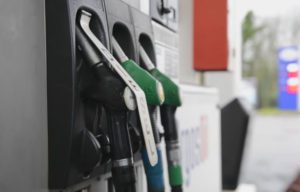
Some 780 filling stations continue operating without a fuel sales license after the launch of the fuel administration reform from July 1, the Ukrainian Oil & Gas Association has said.
The data was obtained by the association during the reconciliation of information on fuel retail locations on perevirAZS.info with information from the public register of licensees and locations for which licenses were obtained.
“Some 780 of such facilities are not in the register of licensees, respectively, they continue working without a license. In this regard, the Oil & Gas Association sent an official appeal to the State Fiscal Service with a request to inspect these places for availability of licenses and registrations of them as excise warehouses in the electronic fuel sales administration system and other violations,” the association said in a statement.
As reported, the reform of the fuel turnover administration, which began on July 1, 2019, provides for licensing of the production, storage and trade of fuel, modernization of the electronic fuel sales administration system at each excise warehouse, and the launch of a new system for monitoring the actual turnover and remaining fuel, and toughened liability for illegal fuel operations.
In the middle of August, the State Fiscal Service reported on the issuance of more than 9,500 licenses for the right to manufacture, store fuel and trade with it, of which 780 licenses were issued for storage.